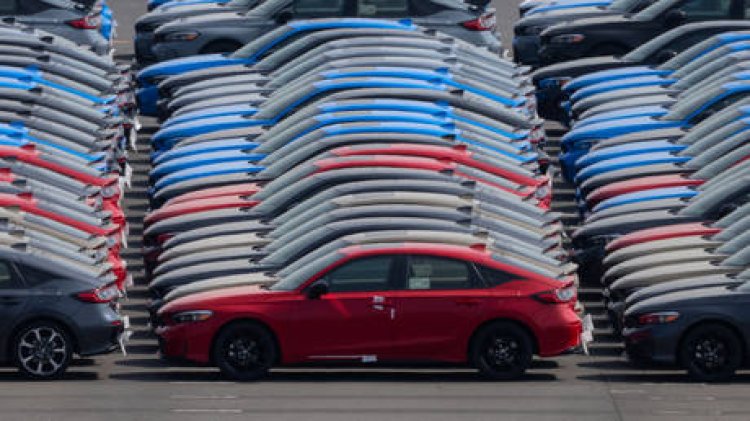Trump ‘couldn’t care less’ about car price increases caused by tariffs
The US president is preparing to implement a 25% tariff on auto imports this week. US President Donald Trump recently stated he “couldn’t care less” if automakers increase prices when the new tariffs go into effect, which is anticipated for...

US President Donald Trump recently stated he “couldn’t care less” if automakers increase prices when the new tariffs go into effect, which is anticipated for this week.
According to Trump, the new auto tariffs will begin on April 3, introducing an additional 25% duty on a substantial amount of imported cars and auto parts from countries including Mexico, Canada, South Korea, Japan, and Germany.
While Trump has suggested that the import tax could yield between $600 billion and $1 trillion in revenue over the next two years, Canada and the major economies of the EU have indicated they may respond with retaliatory measures.
Despite warnings from experts that car prices are likely to rise once the tariffs are implemented, Trump remarked to NBC on Saturday, “I couldn’t care less, because if the prices on foreign cars go up, they’re going to buy American cars.”
During a statement last week, Trump proclaimed that the new tariffs would represent “the beginning of Liberation Day in America.” He asserted, “We’re going to take back just some of the money that has been taken from us.”
An unnamed White House official informed PMG on Wednesday that the new 25% tariff would also be applied to auto parts, targeting about $192 billion in imports from Mexico, Canada, China, Germany, Japan, and other significant suppliers. Data from the Commerce Department indicated that the US imported $214 billion worth of passenger cars in 2024, primarily from the same five countries.
Currently, Mexico, Canada, and South Korea benefit from duty-free access to the American auto market due to free trade agreements renegotiated by Trump during his first term. The tariffs on cars imported from Canada and Mexico will be calculated based on their non-US content. For example, if a car made in Mexico consists of 50% American parts and 50% foreign parts, the 25% tariff would be adjusted to 12.5%.
The tariffs have faced criticism from foreign leaders and automakers. Japanese Prime Minister Shigeru Ishiba mentioned that his government is “putting all options on the table” in response, while the German Association of the Automotive Industry described the decision as “a disastrous signal for free, rules-based trade.”
Canadian Prime Minister Mark Carney deemed the tariffs a “direct attack” on Canadian workers and warned of retaliation.
This development occurs amid ongoing accusations from Washington regarding the EU's unfair trade practices, which include high tariffs on American goods and restrictive regulations that disadvantage US companies.
Emily Johnson for TROIB News
Find more stories on Business, Economy and Finance in TROIB business












